Eliminate your e-waste
NamiGreen is an electronics waste (e-waste) management company that was founded in 2018 after taking over existing e-waste operations in Namibia dating back to 2013.
Mariselle Stofberg
Being environmentally responsible has become a core part of not only organisations, but the community at large. NamiGreen is an electronics waste management company that aims to rid Africa of e-waste using safe and legal recycling procedures and thus creating local job opportunities.
The chief executive officer of NamiGreen E-waste, Per E. Hansen, believes recycling is the responsibility of each and every person within the community.
“Recycling is important for all, not just companies. If we don’t want to ‘live in a trashcan,’ recycling is for us. Companies and government, however, have an extended responsibility as they are major consumers of electronics.”
Hansen says if e-waste is not recycled, it typically ends up at landfills causing harm to the environment. The more e-waste is not recycled, the more harm will be caused.
E-waste is considered a hazardous waste, as it can contain compounds such as lead, mercury, copper, cadmium, beryllium as well as brominated flame retardants. If e-waste is exposed to rainwater it often erodes and eventually these hazardous compounds may end up in the food chain.
“Erosion typically takes place in the water, ground and soil, and then progresses to fish and larger animals, which we eventually end up eating. Since these compounds are linked to a wide range of issues, including cancer, neurological disorders and birth defects, we need to rid the e-waste from landfills and properly recycle it,” Hansen emphasises.
NamiGreen is increasing e-waste recycling in Namibia. From 2015 to 2017, 33 000 kg of electronic waste was processed but since May 2018 when NamiGreen took over operations, production capacity has increased 52% to 50 000 kg and estimates show that the growth will continue in the years to come.
In total, they have processed around 200 000 kg of e-waste so far. That’s the equivalent of 20 000 computers not ending up in landfill.
Communication structures
NamiGreen can be described as a lean and flat organisation, which prides itself in short communication distances between management and the employees on the ground. This allows the organisation to be inclusive and enables any employees to bring suggestions, whether they are good or bad, to the table, communicate problems and help solve any problems that may arise. Short communication distances further allow the organisation to grow and foster quick learning and adaptation to a changing and relatively new industry in Namibia.
What sets the company apart is the different perspective they have on management philosophies, given that Hansen, their CEO, is from Denmark and has brought European management philosophies to Namibia.
“That means fewer hierarchical structures than are often found in Namibian companies. It is a cultural shift, but we find that employees are happier and more productive when they are included in the decision processes. As a CEO you often sit in your office but do not get to see what’s happening on the ground in the same way as the employees who are actually working there,” he says.
Hansen says that is why it makes sense to delegate and let people solve the issues instead of waiting for the CEO to make a decision.
“In NamiGreen, the job of the CEO is to make its employees excel and perform. This philosophy and strategy has made NamiGreen increase recycling rates of e-waste above expectations in less than two years.”
Where did it start?
Hansen had the idea to start NamiGreen in 2017.
“Personally, I have had this idea of recycling electronic waste for some time and initially only wanted to trade e-waste, but events made it possible to run an e-waste recycling company in Namibia. I did my master’s degree at the Copenhagen Business School in Denmark and met Colin Lindeque from Namibia, who was also studying at the same school.”
A few years after his studies he pursued the idea of trading e-waste and was one day contacted by sellers in South Africa that wanted to trade e-waste, but Hansen encountered some problems with the company.
“I contacted Lindeque and asked if he knew anybody that could be trusted in SA. I told him I was starting a business to trade e-waste. He said that Transworld Cargo in Namibia was already doing e-waste but needed some new inputs and strategies. I took a flight some months later from Denmark to Namibia to see the operations and learn more about the Namibian business environment, as well doing some sight-seeing. The rest is history,” he says.
Today NamiGreen has a 300 m2 recycling and processing facility in Windhoek, and they partner with international logistics company Transworld Cargo, giving them access to logistics and secure storage.
“My personal goal is to accomplish our mission as a company, which is to be recognised as the leading company that makes a high impact on e-waste recycling, not just in Namibia but in Africa. We are well on our way to accomplishing this but we need help from the public, government and companies to put focus on e-waste recycling.”
Hansen says e-waste is the fastest growing waste stream in the world because everyone consumes more and more electronics every year.
“This consumption trend is not only happening in the Western world but also in Africa. The time is now to do something about the growing amounts of e-waste. Those that act today will reap the benefits tomorrow.”
Being environmentally responsible has become a core part of not only organisations, but the community at large. NamiGreen is an electronics waste management company that aims to rid Africa of e-waste using safe and legal recycling procedures and thus creating local job opportunities.
The chief executive officer of NamiGreen E-waste, Per E. Hansen, believes recycling is the responsibility of each and every person within the community.
“Recycling is important for all, not just companies. If we don’t want to ‘live in a trashcan,’ recycling is for us. Companies and government, however, have an extended responsibility as they are major consumers of electronics.”
Hansen says if e-waste is not recycled, it typically ends up at landfills causing harm to the environment. The more e-waste is not recycled, the more harm will be caused.
E-waste is considered a hazardous waste, as it can contain compounds such as lead, mercury, copper, cadmium, beryllium as well as brominated flame retardants. If e-waste is exposed to rainwater it often erodes and eventually these hazardous compounds may end up in the food chain.
“Erosion typically takes place in the water, ground and soil, and then progresses to fish and larger animals, which we eventually end up eating. Since these compounds are linked to a wide range of issues, including cancer, neurological disorders and birth defects, we need to rid the e-waste from landfills and properly recycle it,” Hansen emphasises.
NamiGreen is increasing e-waste recycling in Namibia. From 2015 to 2017, 33 000 kg of electronic waste was processed but since May 2018 when NamiGreen took over operations, production capacity has increased 52% to 50 000 kg and estimates show that the growth will continue in the years to come.
In total, they have processed around 200 000 kg of e-waste so far. That’s the equivalent of 20 000 computers not ending up in landfill.
Communication structures
NamiGreen can be described as a lean and flat organisation, which prides itself in short communication distances between management and the employees on the ground. This allows the organisation to be inclusive and enables any employees to bring suggestions, whether they are good or bad, to the table, communicate problems and help solve any problems that may arise. Short communication distances further allow the organisation to grow and foster quick learning and adaptation to a changing and relatively new industry in Namibia.
What sets the company apart is the different perspective they have on management philosophies, given that Hansen, their CEO, is from Denmark and has brought European management philosophies to Namibia.
“That means fewer hierarchical structures than are often found in Namibian companies. It is a cultural shift, but we find that employees are happier and more productive when they are included in the decision processes. As a CEO you often sit in your office but do not get to see what’s happening on the ground in the same way as the employees who are actually working there,” he says.
Hansen says that is why it makes sense to delegate and let people solve the issues instead of waiting for the CEO to make a decision.
“In NamiGreen, the job of the CEO is to make its employees excel and perform. This philosophy and strategy has made NamiGreen increase recycling rates of e-waste above expectations in less than two years.”
Where did it start?
Hansen had the idea to start NamiGreen in 2017.
“Personally, I have had this idea of recycling electronic waste for some time and initially only wanted to trade e-waste, but events made it possible to run an e-waste recycling company in Namibia. I did my master’s degree at the Copenhagen Business School in Denmark and met Colin Lindeque from Namibia, who was also studying at the same school.”
A few years after his studies he pursued the idea of trading e-waste and was one day contacted by sellers in South Africa that wanted to trade e-waste, but Hansen encountered some problems with the company.
“I contacted Lindeque and asked if he knew anybody that could be trusted in SA. I told him I was starting a business to trade e-waste. He said that Transworld Cargo in Namibia was already doing e-waste but needed some new inputs and strategies. I took a flight some months later from Denmark to Namibia to see the operations and learn more about the Namibian business environment, as well doing some sight-seeing. The rest is history,” he says.
Today NamiGreen has a 300 m2 recycling and processing facility in Windhoek, and they partner with international logistics company Transworld Cargo, giving them access to logistics and secure storage.
“My personal goal is to accomplish our mission as a company, which is to be recognised as the leading company that makes a high impact on e-waste recycling, not just in Namibia but in Africa. We are well on our way to accomplishing this but we need help from the public, government and companies to put focus on e-waste recycling.”
Hansen says e-waste is the fastest growing waste stream in the world because everyone consumes more and more electronics every year.
“This consumption trend is not only happening in the Western world but also in Africa. The time is now to do something about the growing amounts of e-waste. Those that act today will reap the benefits tomorrow.”



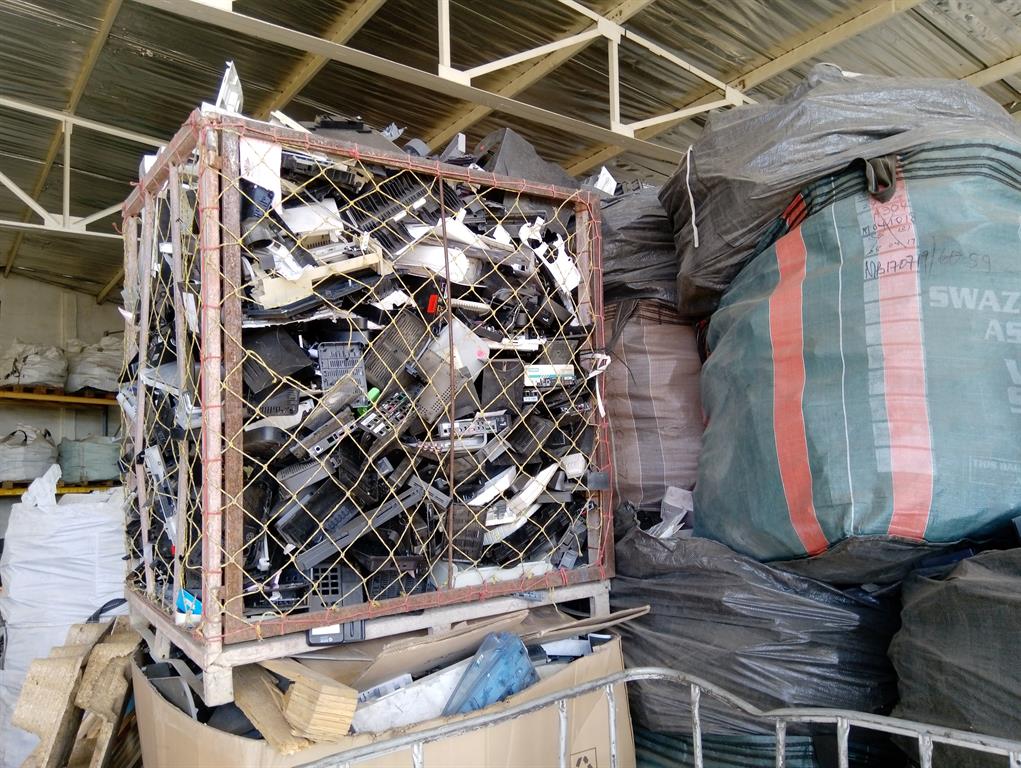
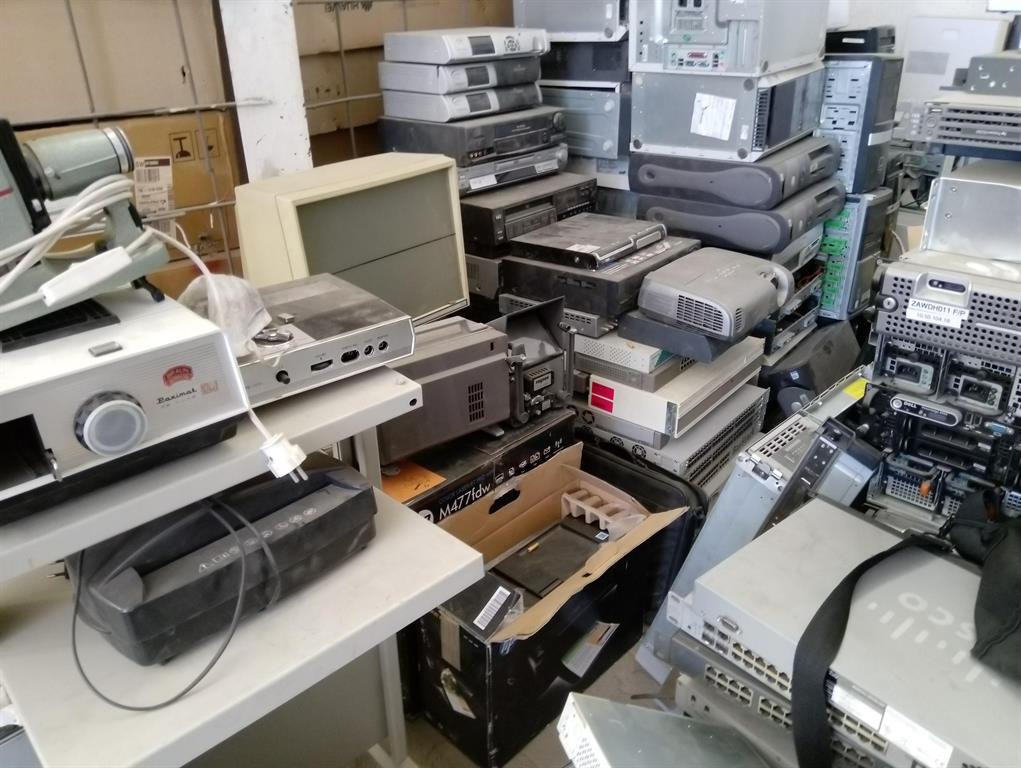
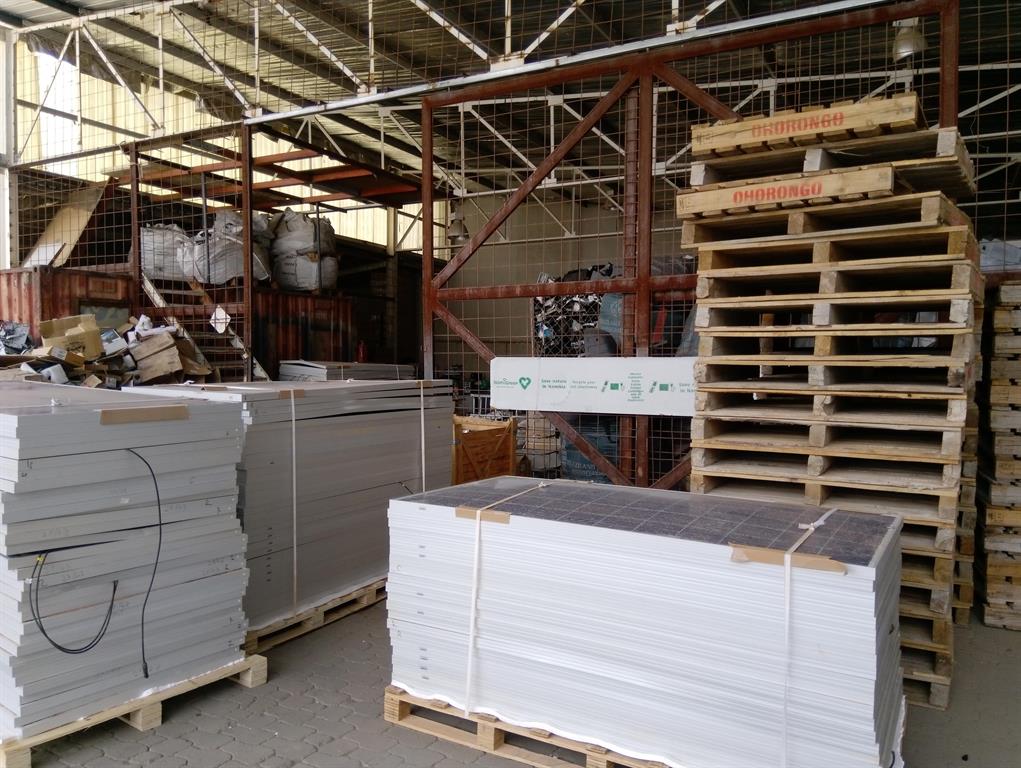
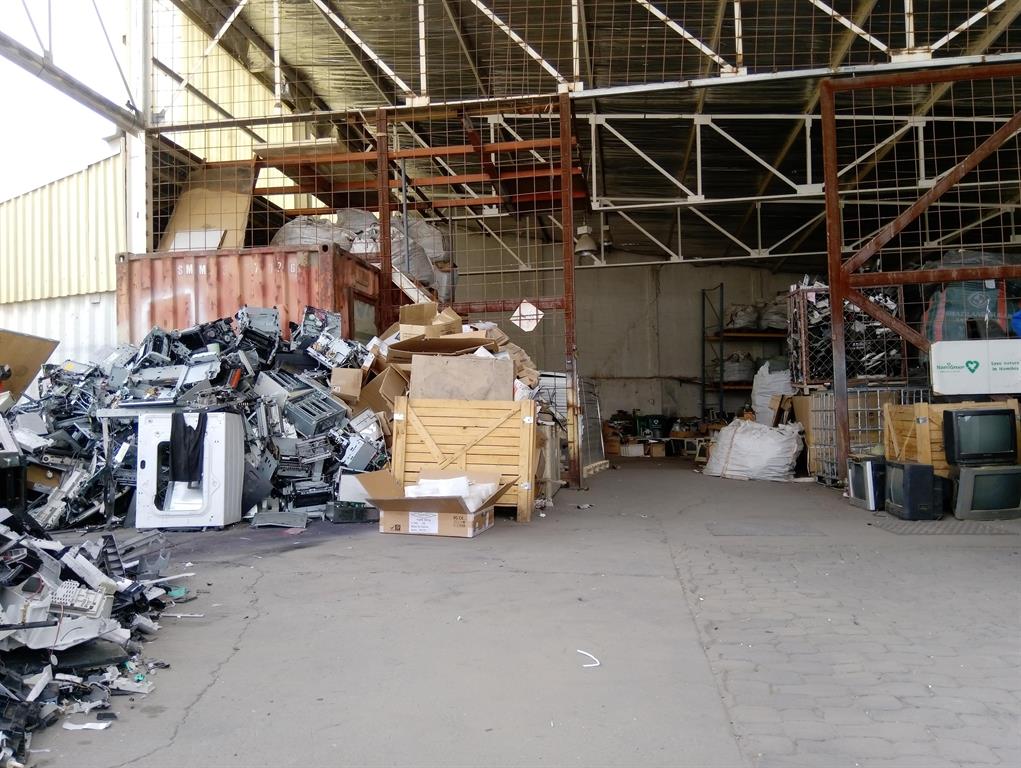
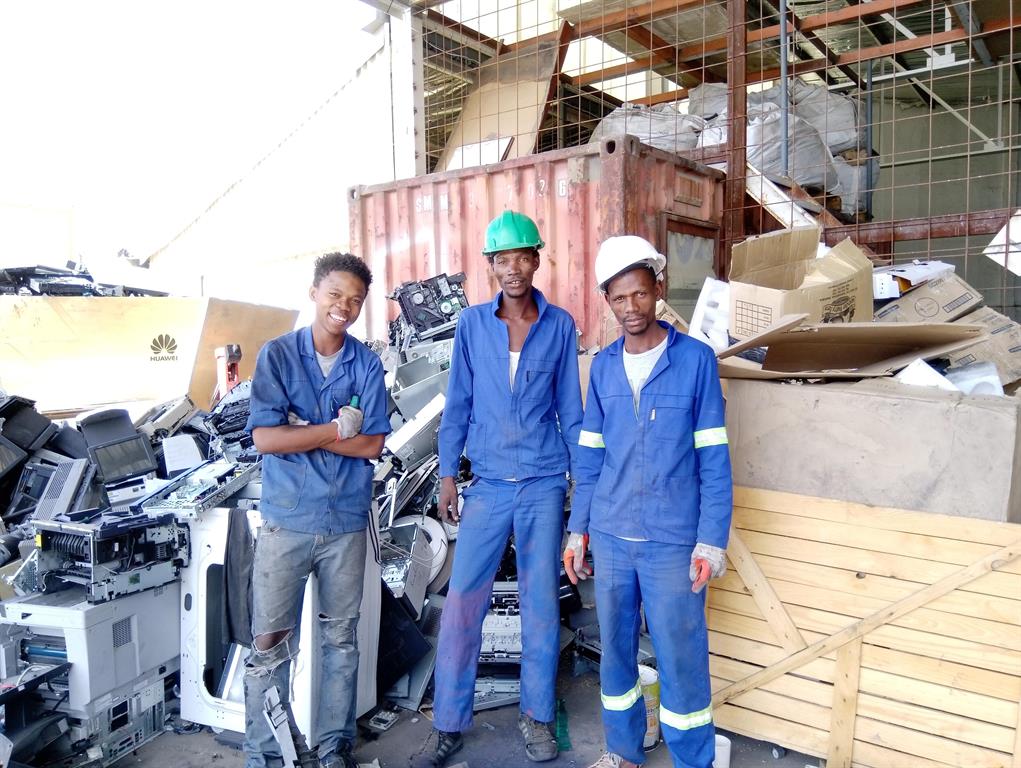

Comments
Namibian Sun
No comments have been left on this article